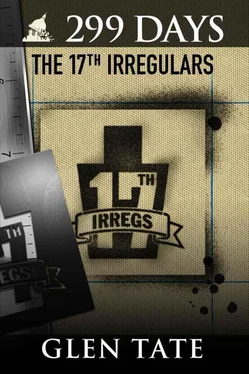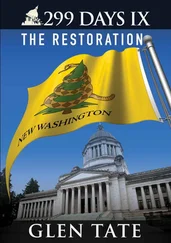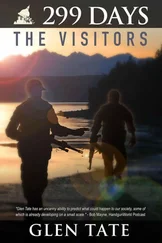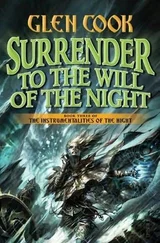Grant remembered that phrase from World War II. Code talkers were Navajo Indians in front line combat units in the Pacific who spoke Navajo on radios. The Japanese had no idea what language it was and thought it was an extremely complex code. This allowed the code talkers to talk on regular, non-encrypted radios and did not require time-consuming conversions of the messages back into non-encrypted text. It was brilliant.
Hammond went on, “Ashur and his family are taking extreme risks by helping us this way. Let me be candid. There are some Muslim terrorists out there. Ashur, please explain to everyone why we can trust you.”
Ashur said in a thick Arabic accent, “First of all, we are Christians, not Muslim. My people have been Christians for about two thousand years. The Muslim terrorists want to kill Christians like us and already have destroyed several of our cities and villages back home.”
Ashur continued, “We came to America several years ago when things were going badly in…”
Hammond held his hand up, “Sorry, Ashur, please don’t describe the country or the language. We’ll keep that a secret. Sorry to interrupt you, sir,” Hammond said. It was apparent that Hammond genuinely respected Ashur.
“Things were going badly in my home country,” Ashur said, “and we came to the ‘land of the free.’ But guess what? It wasn’t free. It was when we got here, but it changed. Now America is like my home country. Bribes, corruption, no freedom. The authorities in Seattle targeted my business because I had a cross up in my store that was ‘offending’ to people.”
Ashur continued, “People were robbing my store—pointing guns at my sons—all the time and the police wouldn’t do anything about it. Then my son was jailed after shooting a robber. The police knew my son was innocent, but no one cared and he went to jail. The police wanted bribes to let him out. I decided that we needed to leave Seattle. The authorities made me give up the store to them, along with all of our inventory, in order to leave. One of my sons knew one of your ‘Oath Keepers’ and here we are.”
Ashur got a very angry look on his face and he started talking louder. “We know what oppression is. We lived in it back in our home country. I promised my father when I left there that his family would live somewhere free. My family has taken a…the closest English word is ‘vow.’ This vow is a very serious promise in my culture. To dishonor this vow would bring shame to my family. Our vow is to fight for the Patriots to bring back freedom. I am risking my family’s lives to help you to get our freedom back.”
The room was silent. Grant was moved to hear someone who had come from a corrupt third-world country and eventually found the same thing in America.
Hammond said, “Ashur’s family, the women and children, are staying with Patriot families. Ashur’s vow is that if he or his men dishonor the Patriots or are spies that we have permission to kill his family.” Exchanging voluntary hostages as a way to seal an alliance was common in Ashur’s culture.
That stunned the audience.
“And you will do it,” Ashur said to Hammond.
“We try not to kill women and children, sir,” Hammond said to Ashur. “But if your men get my people killed…I cannot promise that I can protect your family from my men.” Hammond was serious.
Hammond knew that he needed to convince the unit commanders that these Arabs were trustworthy. The Patriot’s ability to kill the code talkers’ families was pretty reassuring in a grisly and sickening way, but it was reassuring nonetheless. Hammond wanted to give the irregular commanders another reason to trust the Arabs.
“Ashur’s family has already run some missions with us,” Hammond said. “They have performed outstandingly. They are brave and competent.”
Ashur’s chest puffed out in pride. He was so proud of his family and their bravery. He was fulfilling his vow to his father. That meant everything.
“So,” Hammond said, “I have no trouble whatsoever trusting one of Ashur’s family members with the lives of each and every one of my soldiers.”
Grant was convinced. Besides, by having the Arabs at Boston Harbor who could tell the Limas about the place, Hammond was trusting his own life to the Arabs.
But, there was a bigger lesson here than just whether a particular family could be trusted, Grant thought. This is what happens when a government mistreats people. It causes them to fight for the other side. Ashur and his family were perfect examples of it.
Grant remembered George Washington’s and Mao’s writings on popular support. They were right. Now, because the government mistreated Ashur’s family, each irregular unit had an unbreakable code. They could quickly talk on the radio while the Limas would have to spend time and resources with encryption. Having code talkers was a huge advantage. That was a high price the Limas were paying for treating Ashur’s family so poorly.
This was happening all over the country, Grant thought. People were standing up to the government because of how it had treated them. Grant was now more convinced than ever that his side was going to win. For exactly the reasons Ashur was working for the Patriots.
The captain said to Ashur, “Could your men count off, sir?”
Ashur nodded and said something in his language. One by one, the men counted off in their language. They stood up as they did. The Arab men ranged in age from late teens to about forty. Grant was trying to count with them (in English) to see which one was “seventeen” and would be joining his unit. He couldn’t keep up. They counted so fast.
Ashur said to the captain, “Counted off.”
The captain said, “Please have each man join his new unit.” Ashur said something in his language. The Arab men started to walk up to the commander of their new unit.
A twenty-something college-looking kid came up to Grant. Grant expected the man to speak broken English.
“Hi, I’m Jim,” the Arab man said in perfect English. Grant was stunned.
“Oh. Jim, glad to meet you,” Grant said, extending his hand and wondering if the Arab knew about shaking hands. Grant thought maybe they did that hug and fake kiss thing like they did in the Middle East.
Jim shook Grant’s hand like he’d been doing it his whole life. Because, duh, Jim had been doing this his whole life. Jim had grown up in America, spoke perfect English, and was an American in every way. It was just that he spoke a very rare—and valuable—language at home. Grant felt stupid.
“My real name is Khnanya Al-Halbi, but I go by ‘Jim’ for obvious reasons,” Jim said.
“I’m Grant Matson,” Grant said. “I go by ‘Grant’,” he said with a laugh.
Jim laughed, too. That was a good sign.
“So, is it Grant or Lieutenant Matson?” Jim asked.
“Grant,” he said. This kid was pretty sharp. “Except when we’re around other members of the unit. Then, unfortunately it’s ‘Lieutenant Matson.’” Jim nodded.
By now, all the code talkers had been introduced to their new units. The captain got everyone’s attention.
“Sorry, ladies and gentlemen,” the captain said, “we need to move this meeting along. Your code talker will be going back with you to your units so you can get to know each other at that time.”
“Thank you, Captain,” Hammond said. “Yes, we need to move it along.” Hammond looked at his notes.
“Oh, one thing,” Hammond said. “We obviously can’t refer to these gentlemen as ‘code talkers.’ That would tip off the Limas—although good luck figuring out what language it is, let alone finding anyone around here to speak it. We have every single male speaker of this language who is known to exist in Washington State, but we don’t want them to now we’re using code talkers. The units in various states are similarly using code talkers of languages from all over the world.”
Читать дальше











